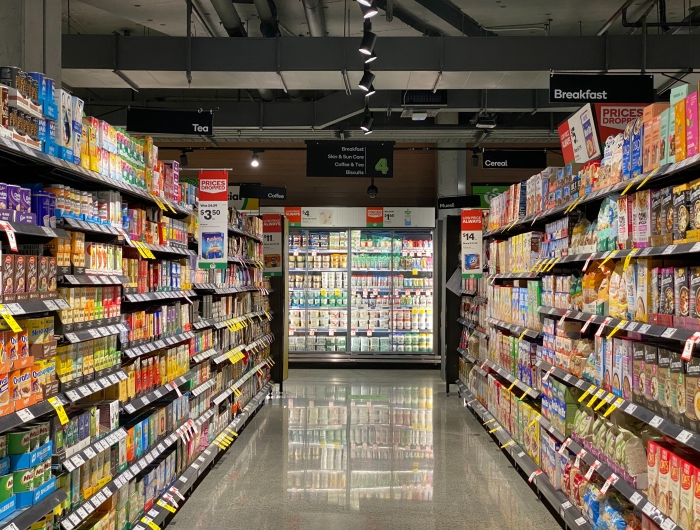CSPI calls on FTC to block proposed merger of Kroger and Albertsons

Franki Chamaki - unsplash.com.
Merger of top two grocers would reduce food access by raising prices and shuttering stores
The Center for Science in the Public Interest is calling on the Federal Trade Commission to block the merger of the nation’s top two grocery chains, Kroger and Albertsons. The nonprofit nutrition and food safety watchdog group says the proposed merger would result in fewer grocery stores and higher food prices—negatively impacting food and nutrition security for consumers around the country.
The Kroger-Albertsons merger would combine the two largest U.S. supermarket chains, resulting in an entity that would control 22 percent of the food retail market and make it the nation’s second largest food retailer. Post-merger, the combined companies plus the largest food retailer, Walmart, would control 55 percent of the food retail market. Research shows that grocery mergers in highly concentrated markets are associated with higher food prices. Consolidation in the grocery industry is also associated with fewer grocery stores. Kroger and Albertson’s admit they’ll have to divest between 100 and 375 grocery stores if the merger is approved.
In addition to outlining its concerns in a letter to members of the FTC, CSPI today announced that it was formally joining the Stop the Merger coalition, led by local chapters of the United Food and Commercial Workers and other labor and economic justice organizations concerned with job losses, higher food prices, and negative impacts on farmers and suppliers resulting from the merger.
“Food prices are higher than ever before, and forty million Americans live in areas with low incomes and limited access to healthy, affordable food,” said CSPI president Dr. Peter G. Lurie. “The proposed merger of Kroger and Albertsons will likely mean higher prices, fewer stores, and less competition. It might be a good move for executives and shareholders, but the merger would be an economic blow to Americans, especially those whose jobs would be lost post-merger.”
CSPI has long been concerned with anti-competitive practices in the grocery industry. In 2021, CSPI asked the FTC to use its authority under Section 6(b) of the FTC Act to investigate food retailer and manufacturer marketing practices, including slotting fees and “category captain” arrangements. The proposed merger would only exacerbate the anti-competitive nature of those practices as the combined company’s buying power grows bigger, according to CSPI. Since then, CSPI filed a public comment on how supply chain disruptions have further exacerbated the previously identified threats to competition and consumer choice in the food retail marketplace. In November of 2021, the FTC ordered nine major retailers, manufacturers, and wholesalers, including Kroger, to provide internal documents as part of its broader investigation into how supply chain disruptions impact competition.
# # #
Contact Info: Lisa Flores, 202-777-8368 or Jeff Cronin, 202-777-8370

